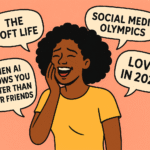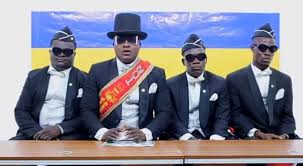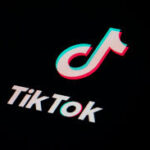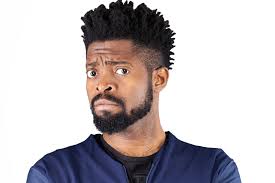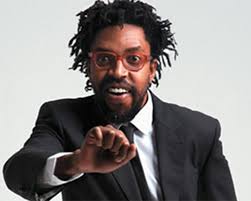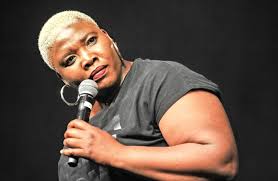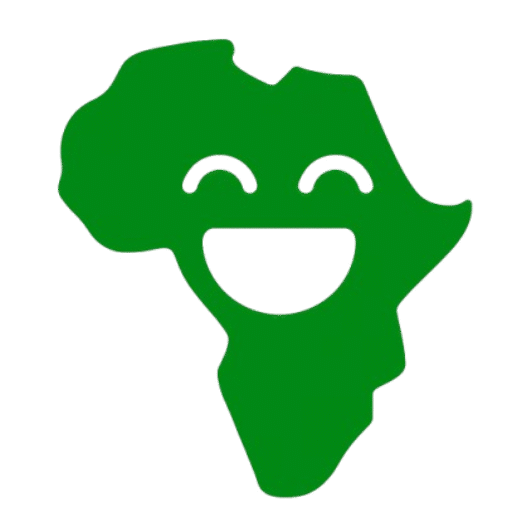Introduction: When Humor Meets a Hashtag
In 2025, African comedy is not just about punchlines or stand-up shows — it’s about pixels, posts, and the perfect meme. From Lagos to Nairobi, Accra to Johannesburg, memes have become the new stage where laughter, culture, and identity meet. These bite-sized jokes — often shared faster than a WhatsApp broadcast — are shaping how Africans laugh, think, and even protest.
Once a casual way to poke fun at life’s absurdities, African memes now dominate online spaces, creating viral moments that unite millions through shared humor. They’re the pulse of a new kind of comedy — one that’s visual, immediate, and deeply rooted in everyday African life.
The Evolution of African Memes: From Inside Jokes to Global Trends
Before 2015, most memes circulating online came from Western pop culture. African humor was underrepresented, often misunderstood, or overlooked entirely. But social media platforms like Twitter (now X), TikTok, and Instagram shifted that balance. African creators began remixing local experiences, languages, and expressions into memes that spoke directly to their people — and the world started paying attention.
Who can forget the “What kind of wahala is this?” meme from Nigeria, or Ghana’s now-legendary coffin dancers that turned a funeral clip into a worldwide symbol of irony? These were not accidents — they were cultural exports. Each meme carried pieces of local slang, body language, or social commentary that made it unmistakably African.
In Kenya, memes about political speeches or matatu (bus) culture became social critiques wrapped in humor. In South Africa, memes reflecting township slang or music trends turned everyday life into comedic gold. Across the continent, memes became not just jokes — but storytelling tools.
Why Memes Work: The New Language of African Humor
1. Instant Relatability
African memes often capture moments that feel too real. Whether it’s the anxiety of checking your Momo balance after a night out or the universal expression of a mother’s stare when chores aren’t done, these images hit home instantly.
They work because they mirror collective experiences — moments that every African recognizes, no matter their country. A single meme can translate frustration, joy, or irony better than a five-minute skit.
2. Cultural Storytelling in Seconds
What makes African memes unique is how they embed language, tone, and cultural references. Nigerian memes may use Pidgin English, Ghanaian ones may drop “Chale,” and South African versions throw in isiZulu or Afrikaans slang. These nuances make memes feel authentic — they don’t just entertain; they preserve and promote local culture.
3. Affordable, Accessible, and Powerful
Unlike big-budget comedy shows, memes cost nothing to create. A funny image, a relatable caption, and an internet connection are all it takes. That accessibility has opened the door for thousands of young Africans to become creators overnight. In 2025, a meme can make someone famous faster than television ever could.
African Comedians and Meme Culture: The Perfect Pair
Many comedians are no longer waiting for traditional media to validate their work — they’re using memes to shape their brand and spark viral conversations.
1. The Rise of Meme-Driven Comedians
Nigerian comedian Mr. Macaroni and Ghana’s SDK Dele are prime examples of how memes amplify a creator’s reach. Their catchphrases — “You’re doing well!” or “Oyaaaa!” — quickly evolve into meme formats, circulating widely even among people who haven’t watched their videos.
In Kenya, Crazy Kennar has turned his sketches into memeable snippets, ensuring that even short clips find a second life online. Meanwhile, in South Africa, creators remix clips from Trevor Noah’s stand-up specials with local captions, creating layers of humor that blend global and local flavor.
2. Memes as Marketing Tools
Brands have caught on too. Telecom companies, fintech startups, and entertainment brands are collaborating with meme creators to drive campaigns. A relatable meme about mobile data or power outages can generate more engagement than a paid ad — simply because it feels like part of the culture, not a corporate message.
This symbiosis between comedy and commerce has created a new kind of influencer: the memepreneur — someone who monetizes humor through virality.
The Social Power of African Memes
Beyond laughter, memes have become vehicles for social commentary. In countries where expressing dissent can be sensitive, humor offers cover. A meme about rising fuel prices or political promises broken can spread across WhatsApp groups faster than news articles — reaching people who might never read formal commentary.
During elections, for instance, memes often become digital billboards for public sentiment. They poke fun, question leadership, and mirror public mood — all under the disguise of comedy.
In 2025, memes are more than jokes; they’re tools of awareness, expression, and subtle protest. And Africans, known for turning pain into laughter, are using them to speak volumes.
The Global Impact: From Accra to the World
African memes don’t just stay on the continent — they travel. The Coffin Dance from Ghana became a global meme phenomenon, featured in millions of TikTok videos worldwide. Nigerian reaction memes, especially those of Nollywood scenes featuring actors like Osita Iheme (a.k.a. Pawpaw), continue to dominate global meme culture years after their creation.
Even African slang has crossed borders. Terms like “wahala,” “sapa,” and “it’s giving” (popularized differently across African contexts) are slipping into global conversations — evidence that humor can be a cultural export as strong as music or fashion.
In many ways, memes have become Africa’s newest soft power tool, shaping perceptions through laughter.
Challenges: The Flip Side of Viral Fame
Like all digital trends, meme culture has its pitfalls.
- Copyright concerns: Many memes use photos or clips without permission. As meme creators gain recognition, legal questions about ownership and credit are emerging.
- Short shelf life: The internet moves fast. A meme that’s funny today might be forgotten tomorrow. Creators must constantly adapt to stay relevant.
- Over-saturation: As memes flood social media, standing out requires originality and cultural insight — not just recycling trends.
Still, for every challenge, there’s opportunity. The most successful creators are those who balance humor with innovation, using memes as a stepping stone to larger creative projects — from brand partnerships to full-scale comedy productions.
What We Can Learn: Memes as a Mirror of Modern Africa
Memes tell us something profound about African society in 2025: that laughter is both a coping mechanism and a creative force. They reveal how Africans see themselves — resourceful, funny, adaptable, and deeply connected to community life.
Through humor, Africans have found a digital voice that transcends borders. Whether it’s poking fun at power cuts, inflation, or love life drama, memes have become a language of unity.
And as AI, technology, and social platforms evolve, one thing remains certain — African humor will keep reinventing itself, frame by frame, caption by caption.
Africa’s New Digital Comedy Stage
In the grand theater of modern entertainment, memes are Africa’s newest stage — a place where creativity, culture, and comedy collide in real time. They’ve redefined what it means to be funny in the digital age, giving everyday Africans a voice, a laugh, and sometimes, a viral legacy.
So, the next time you see a meme that perfectly captures your mood, remember — it’s more than a joke. It’s a reflection of Africa’s vibrant humor, intelligence, and spirit.
What’s your favorite African meme of 2025 so far? Share it in the comments — let’s laugh together.
About the Author
Written by the AfroComedy Editorial Team — a collective of passionate African storytellers, journalists, and digital creators dedicated to documenting the evolution of African humor, culture, and entertainment. At AfroComedy.com, we celebrate laughter as a cultural force — from skits and memes to stand-up and cinema.
Our team researches, interviews, and curates authentic stories that highlight the creativity, resilience, and joy behind African comedy. Follow us as we explore how humor continues to connect and empower Africans across the world.
📧 Contact: hello@afrocomedy.com






